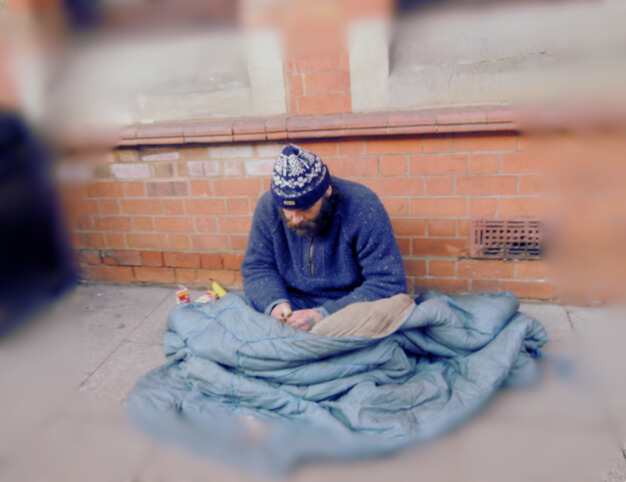PGR Placement - Researching Outside My Academic Comfort Zone

My Postgraduate Researcher (PGR) Placement at St George’s Crypt
Prepared by Yashashwani Srinivas, Postgraduate Researcher, School of History at the University of Leeds
I’m a researcher with a regional specialisation in South Asia, and my academic interests lie in social movements, gender, and marginalisation. My work has often been rooted in projects that are closely tied to who I am and where I come from — questions that come from my location, my politics, and my personal history.
But one thing I’ve always been passionate about is applying my research skills to something entirely new — something that isn’t about me at all. I wanted to explore how research looks in spaces outside of the university, and how I could stretch myself to learn and contribute meaningfully. That’s what led me to the Leeds Social Sciences Institute (LSSI) PGR Placement Scheme — and eventually, to St George’s Crypt.
When I first came across the placement opportunity, I wasn’t sure what to expect. I was told I’d be doing an evaluation — not something I had done before. My experience was mostly in archival research and long-term academic projects. But I decided to take it up. I wanted to challenge myself and scale up my employability in a real-world setting.
From day one, this project shifted how I understood research.
I was placed at St George’s Crypt, a charity working with people experiencing homelessness in Leeds. This was my first time working in a charity space, applying research skills outside an academic framework. I met incredibly kind and committed people who showed me what it meant to work at the intersections of policy, care, and community support. The work they do — day in and day out — moved me.
The task was to carry out an independent evaluation of one of their supported accommodation projects. This wasn’t just about writing a report for the organisation. It was about producing something that could meaningfully inform stakeholders — Leeds city council, policymakers, MPs. It was meant to reflect honestly on what was working, what could improve, and where future efforts could be directed.
I was trusted completely. My line manager, the PI on the project, simply said: You’re the researcher — go ahead and do it. That independence meant everything.
I designed the research plan, created and ran a survey, conducted interviews, handled quantitative data analysis (which was completely new for me!), and wrote the final report — all on my own. I also had to navigate different teams, understand organisational structures, and build everything from scratch, from data protection plans to ethical frameworks. It was both intimidating and empowering.
One thing I carried with me into this placement — coming from a background shaped by marginalisation — was a strong commitment to equality, diversity, and inclusion. I was particularly mindful of whose voices were being heard through the evaluation and made an effort to ensure that there was space for a wide range of participant experiences. For me, research has never just been about collecting data — it’s about listening closely, representing people ethically, and making sure that everyone feels seen in the process. This project reminded me that being a researcher isn’t just about your own area of expertise — it’s also about learning to apply your skills in spaces that are unfamiliar, meeting people you wouldn’t otherwise meet, and expanding your understanding of the world in the process. That’s what real learning looks like.
What stood out for me most was the kindness and warmth I encountered. From the staff at St George’s to the people I interviewed, everyone welcomed me. I also want to give a special shout-out to Andrew Omond, who helped me feel settled and supported from the very beginning.
Beyond skills, this placement broadened my worldview. Coming from a South Asian research background, I was now engaging with British policy contexts — reading reports from the Home Office, diving into local council strategies, and even exploring resources like the House of Lords Library. It was a steep learning curve, but an incredibly rewarding one.
This experience gave me something I didn’t know I needed — the confidence that my research skills are not limited to academia.
If I ever move away from the university space, I know now that I’d love to work in policy or with a charity organisation. This placement opened that door for me.
“We’re developing more supported social housing for homeless and vulnerably housed people, and Yash’s research will support our regulatory journey and inform conversations with central government. Without the PGR scheme, this kind of research wouldn’t have been possible.
Yash was an exemplary professional — sensitive to our client group’s vulnerabilities and committed to delivering a high-quality report."
I’m deeply grateful to the Leeds Social Sciences Institute and to St George’s Crypt for trusting me with this opportunity. It’s one I’ll carry with me for a long time.
Find out more about the PGR Placement Scheme.
Follow us on Linkedin and BlueSky.
